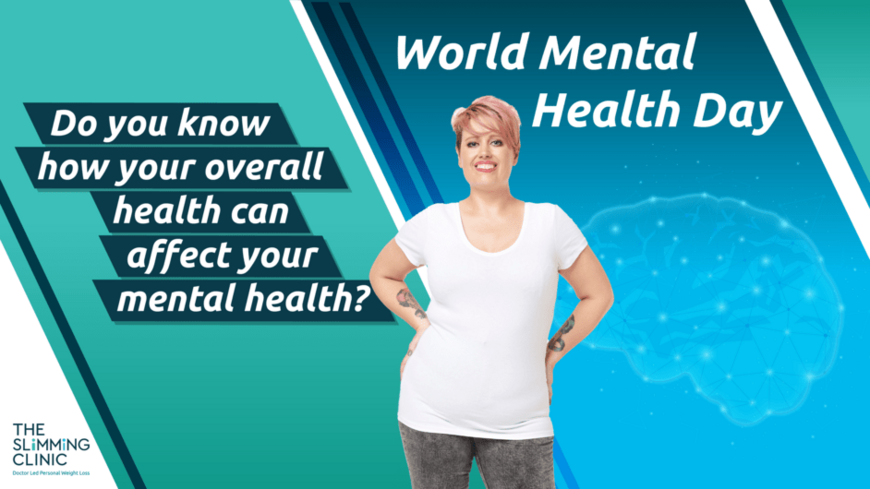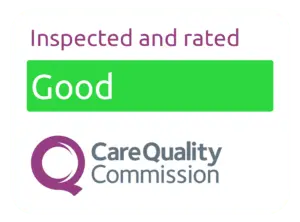Mental Health and Weight Loss
World Mental Health Day: How Your Diet Impacts Mental Wellbeing
This World Mental Health Day, we at The Slimming Clinic want to shine a light on the critical connection between diet, lifestyle choices, and mental health. As we focus on weight loss programmes that involve medication, it’s essential to acknowledge how what we eat and how we live can affect our mental wellbeing.
The Link Between Food and Mental Health
Our diet and mental health are deeply intertwined. What we consume can have both immediate and long-term effects on how we feel. In today’s fast-paced world, it’s more important than ever to understand how lifestyle choices can either support or harm our mental wellbeing.
For instance, sugary, high-calorie foods may give us an instant boost of energy and a short-lived sense of satisfaction, but over time, these same foods contribute to poorer mental health. The short-term high is often followed by energy crashes, mood swings, and even a cycle of dependency on unhealthy food.
Many people turn to food to cope with negative emotions, such as stress, anxiety, or sadness. This emotional eating can quickly spiral into food addiction, as individuals consume more and more to chase that fleeting sense of reward. However, the satisfaction rarely lasts, leaving us feeling worse than before.
Stress plays a big role in this vicious cycle. When we’re stressed or anxious, our bodies release more cortisol—a hormone that increases cravings for sugary and fatty foods. This can lead to overeating and further harm both our physical and mental health.
How to Improve Mental Health Through Diet
If we understand that our diet directly impacts our mental health, what steps can we take to foster positive change?
A key starting point is mindful eating. Ask yourself: "When do I eat, and why?" Are you truly hungry, or are you eating out of boredom, stress, or habit? Many of us eat to soothe emotions, from anxiety to even happiness.
Next time you reach for a snack outside of regular mealtimes, pause and reflect on what’s driving your hunger. By becoming more aware of your eating habits, you can begin to implement healthier choices that support your mental wellbeing.
Seeking Professional Support
Remember, everyone’s experience with mental health is unique. Your symptoms of low mood, depression, anxiety, or stress may differ from someone else’s, and so should your approach to improving your mental and physical health.
At The Slimming Clinic, our doctor-led weight loss programmes are designed to fit your individual needs, lifestyle, and medical conditions. Our expert weight loss doctors work with you to address the root causes of weight gain, including the mental and emotional factors that may be impacting your success.









